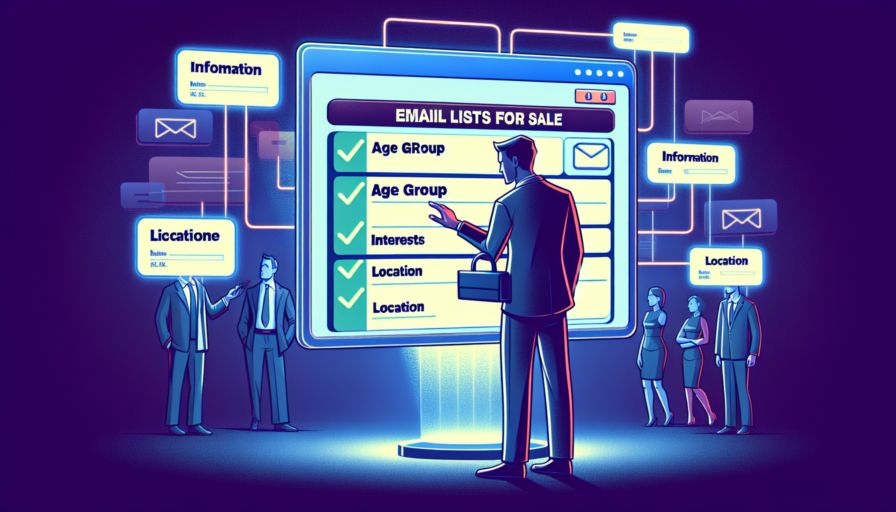How to Successfully Login to Your Edu Email Account: A Step-by-Step Guide
February 15, 2024
Unlocking Academic Privileges: How to Obtain an Email Address Ending in .edu
February 15, 2024Understanding the Legal Implications of a Fake .EDU Email
When considering the creation or use of a fake .EDU email address, it’s essential to recognize the gravity of this decision from a legal standpoint. A .EDU email address is often associated exclusively with accredited educational institutions. These addresses are not just a means of communication but also serve as a gatekeeper to various educational resources, discounts, and services meant solely for students and educators. Misuse of such a privileged domain can lead to serious legal consequences.
Firstly, the appropriation of a .EDU email address may constitute fraud. When you represent yourself with a fraudulent email address, you are essentially expressing an affiliation or identity that is not accurate. This action can be seen as an attempt to deceive service providers or institutions that offer benefits based on educational status. In particular, using a fake .EDU email to gain access to software licenses, subscription discounts, or library resources that you are not legitimately entitled to could be pursued as fraudulent activity under the law.
Moreover, impersonating an educational establishment by using a fake .EDU email address may lead to charges of identity theft. Many jurisdictions have stringent laws protecting individuals and entities from impersonation and the misappropriation of identities. Therefore, creating a fake .EDU email could expose individuals to significant legal risks, including potential criminal charges.
It’s also crucial to understand the contractual implications when registering for services or goods with a fraudulent email address. If discovered, the user agreement with those service providers could be terminated, resulting in the loss of access to services and potentially being barred from future use. This breach of terms can sometimes involve civil penalties or require restitution for any leveraging of services under false pretenses.
When it comes to navigating the world of .EDU email addresses, the importance of adhering to legal and ethical standards is clear. Users should be aware of the responsibility that comes with utilizing these email addresses and the potential repercussions of abusing them. Legal implications are just the tip of the iceberg, with broader ethical and institutional trust issues also at play. Therefore, it is advisable to always operate within the bounds of the law to avoid compromising one’s educational opportunities and legal standing.
Why People Seek Fake .EDU Email Addresses
Many individuals seek out fake .EDU email addresses due to the perception that having an educational email provides various benefits that are otherwise unavailable to the general public. One of the primary reasons is the access to discounts and deals. Several software and technology companies offer substantial reductions in pricing for students and educators. This can include free or discounted access to software suites, such as Microsoft Office and Adobe Creative Cloud, as well as reduced rates on hardware like laptops and tablets. These attractive offerings often motivate non-students to acquire .EDU email addresses by any means necessary.
Another significant factor driving people towards fake .EDU email addresses is the desire for credibility and trust. In academic and professional circles, an .EDU address signals a connection with an educational institution, which could lend additional weight to one’s correspondence. For some, this may equate to a sense of prestige or authority. Moreover, with an educational email account, users might gain early access to academic papers or entry into certain scholarly databases and journals which often require a valid institutional affiliation for full access.
Furthermore, there is a social aspect at play. Exclusivity often breeds desire; the ability to join student-only communities and forums, participate in educational networking events, or even to sign up for student-specific social media offers serves as a strong lure for individuals outside of academia. A fake .EDU email address is a key that unlocks these doors, providing potential networking opportunities and social benefits that are tempting to those who seek to expand their personal or professional networks in educational spaces.
Concerns Regarding Fake .EDU Email Addresses
Despite the apparent advantages, the pursuit of fake .EDU email addresses is not without its ethical and legal concerns. Misrepresentation and deceit involved in the acquisition and use of these addresses are problematic. Users should be aware of the potential repercussions, including the violation of terms of service and the legal implications of fraudulently assuming a student identity. The potential short-term gains are accompanied by the risk of long-term consequences, including loss of access and potential legal actions by educational institutions or service providers.
Legitimate Ways to Obtain an .EDU Email Address
As an aspiring student, researcher, or educator, having an .EDU email address can unlock a plethora of benefits and resources. It’s a mark of credibility and membership within the academic community. But how does one legally acquire such an email address? It’s important to navigate this process ethically to maintain the value and integrity associated with .EDU domains.
Enroll in an Accredited Institution
The most straightforward way to obtain a legitimate .EDU email address is by enrolling in an accredited educational institution. Whether it’s a community college, a four-year university, or a graduate program, registered students usually receive an .EDU email address as part of their enrollment package. This email account not only serves as a primary communication channel with the faculty and peers but also often provides access to various academic resources specific to the institution.
Alumni Email Services
Graduates should not overlook the potential of alumni services offered by their alma mater. Many universities show their appreciation for former students by granting them an alumni .EDU email address. This continued affiliation with a university can be invaluable for networking and professional development. To check if this is an option for you, reach out to your university’s alumni association or visit their website for more details.
Participating in University-Affiliated Programs
In some cases, educational institutions collaborate with third-party organizations or host special programs that furnish participants with a temporary .EDU email address. These might include professional development courses, continuing education programs, or special initiatives for educators. It’s crucial to participate in legitimate and officially sanctioned programs to ensure you receive an authentic .EDU email address that reflects your engagement with the academic community.
Earning an .EDU email address through any of these means not only lends credibility to your professional and academic endeavors but also adheres strictly to ethical guidelines. It’s worthwhile to invest time in researching what your preferred institution offers, as the benefits of having a legitimate .EDU email are incredibly rewarding.
The Benefits of Having a Legitimate .EDU Email Address
When discussing digital credentials, one might overlook the potential benefits of a specific email address domain. Yet, possessing a legitimate .EDU email address opens a plethora of doors, particularly in the fields of education and professional development. The .EDU domain is exclusively reserved for educational institutions, ensuring that an email address with this domain is a hallmark of credibility and affiliation with academia.
Exclusive Access to Educational Resources
One of the standout benefits of a .EDU email address is the exclusive access it grants to an array of educational resources. Many online educational platforms and scholarly journals offer free or substantially discounted access to those with a .EDU address. This can facilitate continual learning and ensure that students and educators alike remain at the forefront of research and academic discourse. Furthermore, software companies often provide educational licenses for their products, which can be instrumental for both learning and teaching.
Enhanced Professional Networking Opportunities
A .EDU email address also serves as a gateway to enhanced professional networking opportunities. It’s common for alumni networks and academic groups to restrict membership to those with a .EDU address, fostering a professional environment where connections and collaborations can thrive. This can be particularly beneficial for career advancement and for staying connected with peers who share similar educational backgrounds and professional interests.
Discounts and Offers Exclusively for Students
Students quickly discover that a .EDU email address is akin to having a virtual discount card. A multitude of businesses recognize the financial constraints of student life and thus offer considerable discounts and promotions to .EDU email holders. These benefits can range from reduced fares in transportation, lower prices on tech gadgets, to more affordable subscription fees for media services. These financial advantages serve not only to ease the burden on students but also to engender brand loyalty among a demographic poised to enter the workforce.
In addition to the tangible savings, the legitimacy conferred by a .EDU email suggests a degree of professionalism that can enhance communication. Recipients of emails from a .EDU address may be more inclined to engage seriously, knowing that the sender is affiliated with an educational institution. Thus, whether it’s for soliciting academic advice, reaching out to industry leaders, or simply purchasing textbooks online, the trust and recognition associated with a .EDU email address are invaluable.
How Educational Institutions Verify Email Eligibility
Educational institutions uphold a strict protocol to ensure that only eligible members, such as enrolled students, faculty, and staff, are granted email accounts under the institution’s domain. The verification process for email eligibility is critical in maintaining the integrity and security of the institution’s communications system. Primarily, the verification relies on real-time access to updated enrollment and employment records.
In the initial stage of verification, prospective users are often asked to provide some personal identification information, which can include their student or employee ID number, full name, and date of birth. This data is cross-referenced against the institution’s secured database to confirm their current status. This verification process, automated for efficiency, relies heavily on the institution’s IT infrastructure, ensuring that only those who meet the criteria are allowed to proceed with email account creation.
Automated Verification Systems
Many educational institutions harness the power of automated verification systems to streamline the process. These systems can immediately check the credentials of an individual against the institution’s enrollment or employment database. If a match is found, the system typically allows the individual to set up their email account. The integration of Single Sign-On (SSO) technology has become a standard practice, allowing users to access multiple resources within the institution’s network using the same set of login credentials, once their eligibility is confirmed.
Manual Checks and Approval Procedures
In certain instances, especially where there are discrepancies or anomalies detected during the automated verification process, a manual check may be necessary. Such cases require intervention from the institution’s IT support team or administrative personnel to reassess the individual’s eligibility. This could involve checking enrollment status with the registrar’s office or employment status with the HR department. Additionally, in the event of a system malfunction or during periods when database updates are being processed, manual verification ensures that eligible users are not erroneously denied access to their emails.
The importance of email eligibility verification cannot be overstated, as it directly impacts the institution’s operational efficiency and safeguards its digital communications. By utilizing both automated and manual verification methods, educational institutions maintain a secure and exclusive environment for their academic community.






